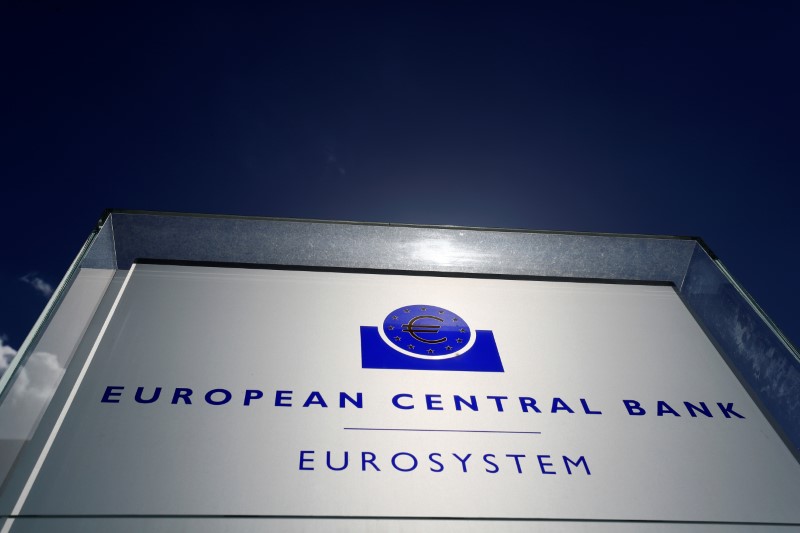LONDON (Reuters) - Investors have significantly lightened their positions on euro zone corporate debt ahead of this week's ECB meeting and are short the sector for the first time since September 2011, a Bank of America (NYSE:BAC) Merrill Lynch (BAML) survey showed on Monday.
The European Central Bank will on Thursday debate ending its massive bond purchase scheme later this year, taking its biggest step in dismantling crisis-era stimulus.
Whether a decision is made this week or in July is secondary: The end of the purchases is a foregone conclusion, and the key question is how the ECB will guide markets on the interest-rate outlook.
Credit markets, especially the high-yield segment, are seen as highly vulnerable to the end of ECB buying, especially as it coincides with rising U.S. interest rates and an apparent slowdown in euro zone growth momentum. The U.S. Federal Reserve is widely tipped to lift rates again when it concludes a meeting on Wednesday.
With the ECB likely to signal tighter policy and Italy's political outlook under a new coalition government still uncertain, the light positioning levels could "help keep disorderly widening moves in credit at bay," BAML told clients.
It its June survey, BAML noted that positions were "massively down" in the financial sector.
That's crucial because ECB buying of corporate bonds is set to drop sharply in coming months. While just under 20 percent of the ECB's buying is directed towards credit markets, this will likely drop to 2.5 percent in 2019 under the central bank's re-investment programme, BAML noted.
In response to a special question on the potential fallout from Italy, 70 percent of investors who answered the BAML poll said uncertainty in the euro zone's third-biggest economy would have a "high" impact on investment grade and junk-rated credit.
"This is driven primarily by the fact that Italian risks highlight the fragility of the euro zone," the note added.
The poll also revealed concerns about the outlook for Italian government bonds.
German investors were the most worried, with almost 60 percent expecting the 10-year bond yield spread between Italy and Germany to end the year in excess of 250 basis points.
In contrast, Italian and Spanish investors appeared more relaxed about political developments, with 20 percent of Italian credit investors expecting the Italian/German 10-year yield spread to end 2018 below 100 bps.
That gap was at 247 bps on Monday (IT10YT=RR) (DE10YT=RR).

The survey was conducted among 76 clients, including banks, insurers, pension funds, asset managers and hedge funds.